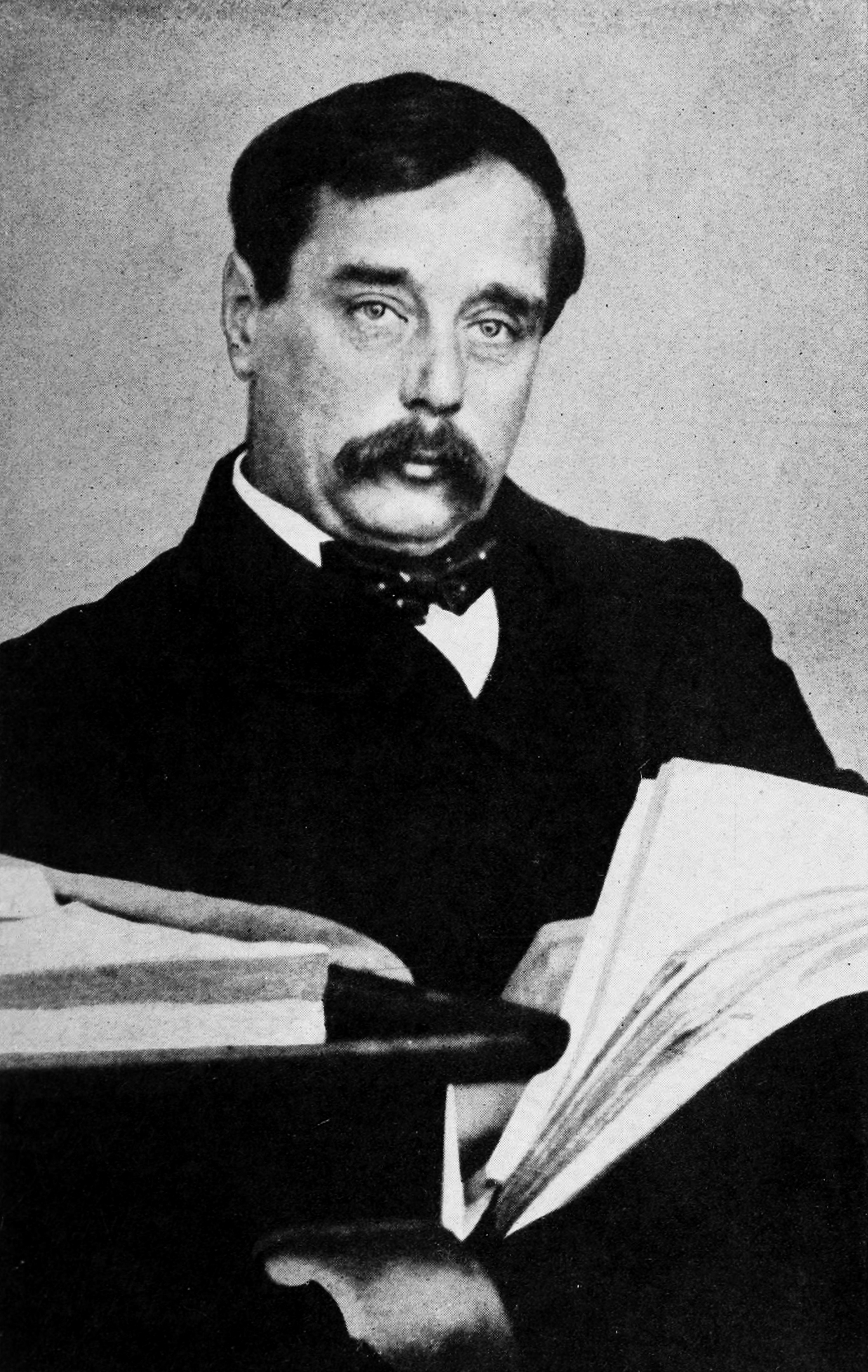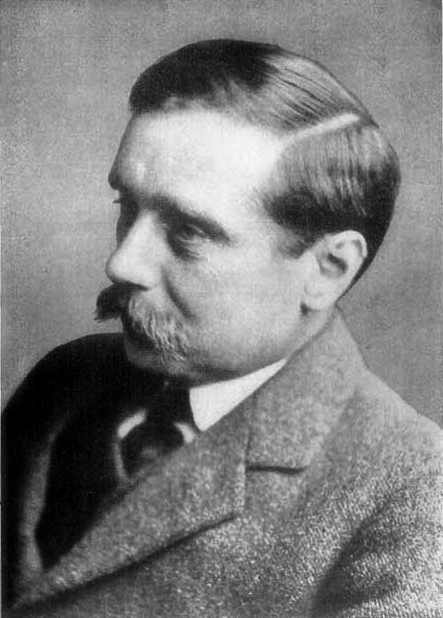“Mind at the End of Its Tether” (1945) is the last published work by the English author H. G. Wells (1866–1946), a darkly pessimistic essay in which he considers the likelihood that humanity will soon be replaced by another, more advanced species.[1]
Synopsis
Wells begins by setting out his conviction that within recent times, “weeks and months rather than … aeons”, something fundamental has changed in human life.[2] He rests his premise on the idea that until recently there had been an underlying rationality to life’s events, but now there is only disorder. There is no “Pattern of Things to Come … Events now follow one another in an entirely untrustworthy sequence”,[3] and humanity either has to adapt to this new unpredictability or perish.
Wells argues that throughout the existence of life of Earth there has been a constant succession of forms, superseding previously dominant ones because they were better adapted to changing circumstances. One of the many examples he uses is the emergence of modern man, Homo sapiens, and the subsequent extinction of the earlier Neanderthals.
Wells is pessimistic about the ability of modern man to adapt to the chaos that has descended on the world, and states his belief that “the human story has already come to an end”.[4]
Commentary
The extinction of the human species and how that might come about was a recurring theme in Wells’s work, seen first in his 1894 essay “The Extinction of Man Pessimistic essay by H. G. Wells first published in 1894, about some of the ways humanity could become extinct.“, and followed up in his short stories “The Sea Raiders
Pessimistic essay by H. G. Wells first published in 1894, about some of the ways humanity could become extinct.“, and followed up in his short stories “The Sea Raiders Short story by H. G. Wells, first published in 1896, about a raid by an unknown species of octopus-like creatures on the south coast of England.” (1896) – essentially an elaboration of his earlier essay[5] – and “The Empire of the Ants
Short story by H. G. Wells, first published in 1896, about a raid by an unknown species of octopus-like creatures on the south coast of England.” (1896) – essentially an elaboration of his earlier essay[5] – and “The Empire of the Ants Short story by H. G. Wells first published in 1905, about a plague of large intelligent ants, which pose a threat to mankind's continued existence.” (1905).
Short story by H. G. Wells first published in 1905, about a plague of large intelligent ants, which pose a threat to mankind's continued existence.” (1905).
At about the same time that Wells was writing “Mind at the End of Its Tether” he was also working on the much more cheerful and optimistic The Happy Turning (1945), a collection of essays describing his dreams and the encounters he had within them.[6]
See also
- List of works by H. G. Wells
 List of publications written by H. G. Wells during the more than fifty years of his literary career.
List of publications written by H. G. Wells during the more than fifty years of his literary career.


